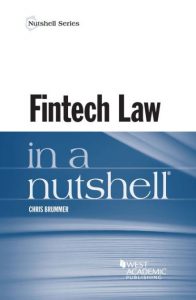Professor of Law : Georgetown University, and Director, Institute of International Economic Law
New Book on Fintech Law

Minilateralism’s author, Professor Chris Brummer, has authored a new guide for students and experts alike that are seeking to learn about, or deepen their understanding of, fintech law. Technology is redefining financial services―including the way actors make and settle payments, raise capital, extend loans, and memorialize increasingly complex relationships. At the same time, new innovations―from cryptocurrencies to marketplace lending, robo-advising, and mobile payments―are creating novel regulatory issues for anti-money laundering requirements and cybersecurity. Professor Brummer’s Nutshell provides an overview of some the key developments reshaping finance―and the rules deployed to oversee them.
Recent Posts
Archives
- May 2023
- May 2020
- March 2020
- February 2020
- January 2020
- December 2019
- November 2019
- October 2019
- September 2019
- August 2019
- July 2019
- June 2019
- May 2019
- March 2019
- January 2019
- December 2018
- November 2018
- October 2018
- July 2018
- June 2018
- May 2018
- March 2018
- February 2018
- January 2018
- December 2017
- November 2017
- October 2017
- September 2017
- August 2017
- July 2017
- June 2017
Categories
Copyright 2020, Chris Brummer, All Rights Reserved. Privacy Policy | Contact Us


